14, February 2020
Southern Cameroons Crisis: Why the emergency meeting? 0
A few days ago, Cameroon’s President, Paul Biya, convened an emergency meeting of his cabinet and for days, it seemed like nothing would filter out. As usual, it does not take long for some people to start spilling the beans, and this is what is happening.
Even members of the president’s inner circle are frustrated. They want change, but the president seems to be unable to engineer the change they are looking forward to. The president seems to be stuck to the past, as he is always rehashing policies that have outlived their usefulness and politicians who lack the vision and courage to embrace new and innovative ways.
The Southern Cameroons crisis that has put the country in the spotlight for all the wrong reasons was at the top of the agenda. The African Union, like the United Nations, has finally decided to break its silence, and this has ruffled the Yaounde government.
Last week’s elections did not meet African Union standards and they were held against the backdrop of military violence, with some 8,000 Southern Cameroonians escaping to Nigeria, according to the United Nations. The mass movement was prompted by government violence and lack of security in the two English-speaking regions.
According to the African Union, last week’s twin elections which took place on 9 February were held in a context marked by political and security tension. They were also marked by the absence of a consensus among the political actors. This, the African Union believes, affected the inclusive character of the elections and the mobilization of voters.
The African Union has therefore called upon the government of Cameroon and political actors to pursue efforts that will help to ease the tension.
The African Union also recommended that the government should take necessary measures that will ensure citizen participation and inclusion in all decisions in order to ensure that peace and security return to the country.
The continental body urged the government to establish a dialogue framework that will bring together all political actors, adding that such measures would restore confidence and foster peace in the country.
With the bad news from the African Union and the United Nations, the country’s president felt that his credibility as a leader had been called into question. He had to act, though he is not known for taking swift actions, especially against members of the crime syndicate he runs.
He had been informed by his collaborators that the elections had taken place normally, but with the United Nations and the African Union challenging the drama that government officials and the ruling party (CPDM) had staged; Mr. Biya felt it was time to bring in his closest collaborators for an honest discussion.
He used the occasion to advise his collaborators to tone down their rhetoric, adding that though Cameroon was a sovereign country, the impressions and opinions of the international community still mattered.
Meanwhile, the fighting in the two English-speaking regions has continued with government forces going on a home-burning spree in many parts of the Northwest region.
On Thursday, February 13, 2020, soldiers loyal to Mr. Biya burnt a lady to death in Ntigi, a neighborhood in Bambili in the Northwest region, leaving many innocent civilians worried about their lives and future.
The burning of homes in the Northwest region is a daily affair. In a bid to render Southern Cameroonians desperate, the Yaounde government has been burning their homes and farms. The government seems to be engaged in a scorch earth policy as a means of turning the population against Southern Cameroonian fighters who have given government forces a run for their money over the last three years.
In the Southwest region, many cities seem to be enjoying some peace, although from time to time, there are outbursts of tension in cities like Buea, Mamfe, Mutengene and Kumba. The situation in the region is very uncertain and can only be compared to Mount Etna whose eruptions have become normal.
Though this unsettling calm is prevailing in major cities in the Southwest region, the small towns are still taking a beating from the reckless military. In Ossing, a town some 6 miles from Mamfe, sex-starved and alcohol-inflamed soldiers killed two innocent civilians on Wednesday.
The trigger-happy soldiers are used to heading to small towns to conduct unnecessary raids as a means to enrich themselves and they do sometimes meet some resistance. Their modus operandi is known. They fire in the air to scare off any Southern Cameroonian fighters who might be around during the time of their ill-intentioned raids.
Many civilians have been victims of these irresponsible actions and the Yaounde government that seems to have given the military a carte blanche has never investigated any reckless killing of civilians.
Since the beginning of the crisis, over 5,000 civilians have been killed while sources in the country’s defense ministry put military deaths at slightly over 2,500 soldiers, excluding police officers and prison guards.
The conflict has resulted in the internal displacement of more than a million Southern Cameroonians while more than half a million Southern Cameroonians are in Nigeria as refugees where they are living rough.
The country’s economy has also been hurt by the conflict that might not be addressed anytime soon due to the government’s arrogance and intransigence. Many state-owned corporations such as the CDC and PAMOL have gone under while SONARA, the country’s lone refinery located in Southern Cameroon, is tittering on the brink of collapse following a massive fire a few months ago.
Southern Cameroonian fighters had vowed to bring the country’s economy to its knees, and they seem to be as good as their word. The country’s economy has taken a nosedive, with the government losing many of its income streams.
For more than 40 years, the Yaounde government has been running these state-owned corporations located in Southern Cameroons as its Automatic Teller Machines (ATMs) and the collapse of those corporations has left the government with a bloodshot eye.
Cameroon is heading to the bottom of the abyss and only a well-crafted government policy can stop this spectacular collapse that has been orchestrated by Mr. Biya and his government.
The future is bleak. Things are falling apart. The Yaounde government is desperate. It has been sending delegations to development finance institutions such as the World Bank and the African Development Bank for financial assistance, but the outcome of those discussions has been anything but favorable.
Global investors do not trust the regime that has proven that it is not good at managing resources. Private investors prefer to head somewhere else. The Yaounde government has even been defaulting on its sovereign debts on many occasions and this does not speak well of it.
All these issues were given some attention during the emergency meeting wherein the president painted a very bleak image of things. He might have declared on February 10, 2020, that his government had created 500,000 jobs, but he knew that he was simply inventing things.
The country’s unemployment rate is in double digits and this is a huge concern to the government. With the Francophone majority already jumping into the fray, it is clear that the government is losing sleep.
Francophones who had been intimidated into silence are today speaking out, especially about the killings in the Northwest and Southwest regions, as well as the hardship that is triggering premature aging and death in the country.
The government is aware that if it does not act fast to allay fears and alleviate the poverty that is spreading very fast like wildfire, a popular uprising might show up and this will send the country into a downward political spiral.
The world is watching in total disbelief as Mr. Biya and his inefficient government drag a once-upon-a-time wealthy country to the bottom of a dark abyss. Cameroon is spiraling out of control and if something is not done; its chaos might cross its borders.
All the world is hoping for is the prevalence of wisdom, especially as the president celebrates his 87th birthday. Some analysts hold that somewhere, he might have an attack of conscience and will start taking the right decisions that might save a country that is on life support.
By Soter Tarh Agbaw-Ebai in the United Kingdom and Rita Akana in Yaounde
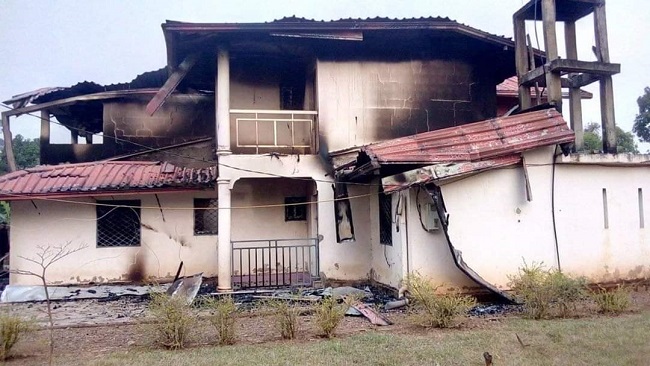
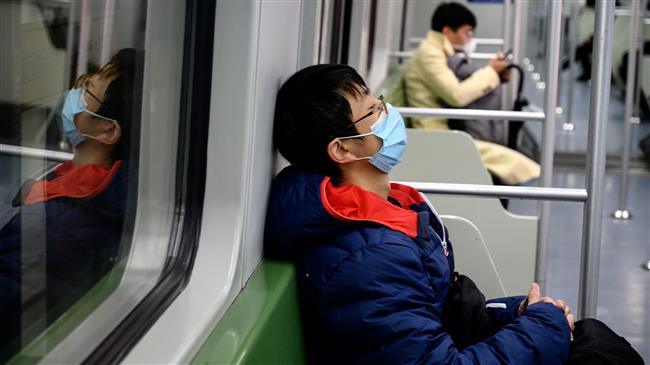


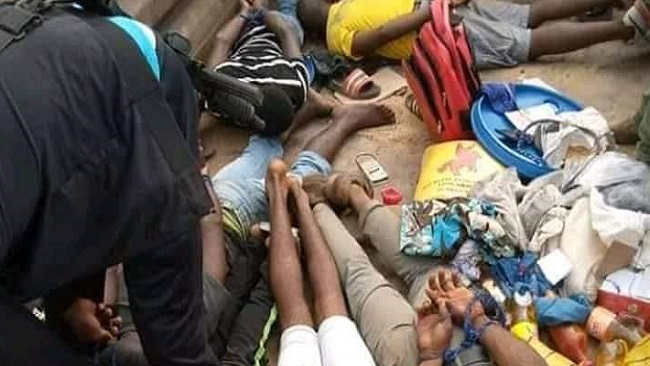
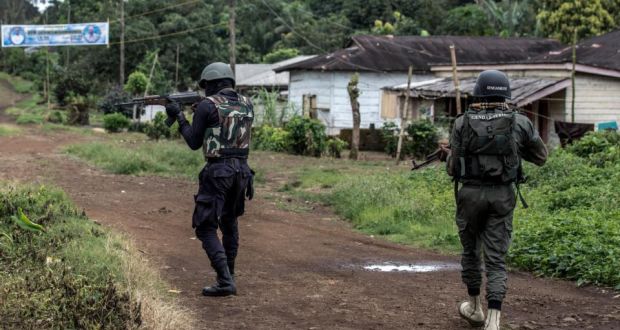
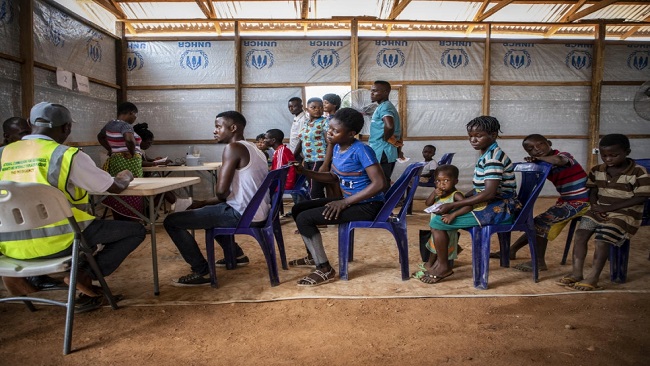
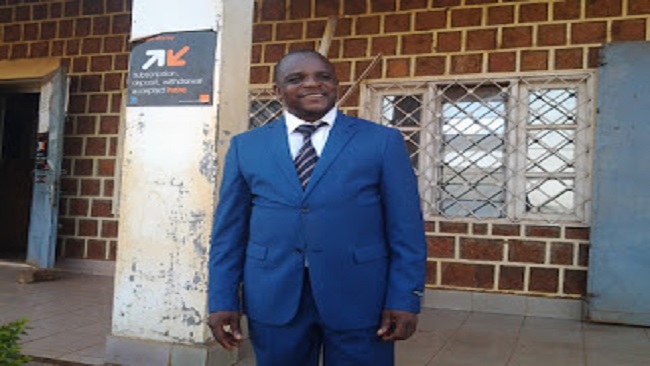
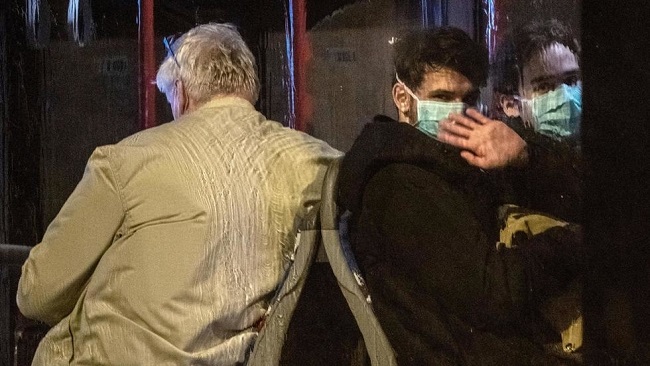

















15, February 2020
‘Gold pits have become tombs’ in French Cameroun as mining leaves a tragic legacy 0
It was the last day of the summer holidays when, on his way to meet friends in his hometown of Batouri, eastern Cameroon, 12-year-old Saustem Brandon Samba slipped on reddish mud and fell into what at first looked like a large puddle.
The puddle turned out to be an abandoned gold mine, with a steep drop, 18 metres deep. Samba tried to get out, his arms and legs scrambling frantically in search of something to grip on to as muddy water choked him.
His father, Sah, still carries a photo of his son’s lifeless body after it was recovered from the mining pit in September 2017.
Between 2017 and 2019, at least 115 children and adults drowned or were buried alive by landfalls in the mostly abandoned pits in the East and Adamawa regions of Cameroon,according to Forests and Rural Development (Foder), a local watchdog that is alone in tracking the accidents and deaths.
“The whole area was not at all secure,” says Sah, whose fury is clear as he describes how gold mining pits in the region – which locals call “tombs” – have been left open and abandoned by Chinese companies, among others.
Samba’s tragic death was not exceptional. The recorded body count, say campaigners, is only the tip of the iceberg in terms of forgotten victims of the ruthless modern-day hunt for one of the world’s most sought-after metals – gold.
Cameroon has one of the richest subsoils in Africa.
Since 2008, gold prices have risen and informal mining has spread widely across the continent. In recent years, more than 400 mining sites have been dug open by dozens of mining companies in Cameroon, predominantly from China, but also from South Korea, Greece, South Africa and elsewhere, according to Foder. Some British companies advertise online that they conduct gold exploration programmes in the country.
Cameroonian law obliges anyone exploiting a mining site to close and restore it before departing. In practice, however, once miners finish digging up gold from pits of up to 100 metres deep, they simply move on to the next project. Few – if any – mining holes are properly restored.
The scale of this is vast, says Eric Etoga, a Cameroonian activist who has been researching the extractive industries for years for Global Youth Dynamic, a local NGO. According to a study he produced in June 2019 for the Publish What You Pay campaign group, mining companies had left 248 open mining holes in in one area of east Cameroon alone. “We need sanctions – without them, people continue to do whatever they want,” said Etoga.
Cameroon’s ministry of mines did not reply to repeated requests for comment.
The Cameroonian branch of the Extractive Industries Transparency Initiative (EITI), a global body that promotes itself as setting the “global standard to promote the open and accountable management of oil, gas and mineral resources”, also failed to address the deaths in the mines, simply forwarding government reassurances that the numbers of mortalities in abandoned pits have significantly decreased over the past two years.
The ministry of mines added that there are fewer deaths following its implementation of information campaigns. “The risky zones have been marked and picture-diagrams have been erected to inform locals of the dangers,” wrote Aristide Mimbang of Cameroon’s mining ministry, in an email forwarded by EITI Cameroon.
Walking among abandoned mining holes in parts of eastern Cameroon, nothing appears further from the truth. Not a single signpost or diagram was seen in the seven sites visited by the Guardian, as unaccompanied young children walked barefoot or wearing flip-flops in the dangerous areas. Women with babies tied on their backs were seen descending into the mines with no protection or safety precautions.
On paper, some British companies extracting gold in Cameroon praise the benefits of the business for local populations, claiming that it helps villagers to survive financially. On the ground, some of the youths working in gold mines confirm that the industry enables them to earn money, which they would otherwise have been unable to do in an underdeveloped region that lacks basic services, including a steady electricity supply.
Yet, when it comes to the open mining pits, corporate reassurances that the holes will be filled up and restored ring hollow. The landscape of eastern Cameroon, which in the past used to provide fertile farming ground for the local population, nowadays resembles the surface of the moon, with giant holes puncturing the once green landscape. As the midday sun heated the pits, the brown, polluted waters inside reek of chemical waste, attracting clouds of buzzing mosquitoes that spread malaria, dengue fever and other killer diseases.
China is Cameroon’s biggest foreign investor and trading partner, operating a wide range of infrastructure projects, from constructing roads to building football stadiums. In January 2019, one of China’s top diplomats, Yang Jiechi, visited the Central African nation.
Yet, in eastern Cameroon, the visit prompted protests, as miners picketed outside a Chinese-run gold mining project in the village of Ngoura, blocking access.
In December 2017, in the nearby village of Ngoe Ngoe, nine people were killed during a land fall in a deep mine left open by the Chinese company Lu and Lang. The pit had been abandoned by workers less than a month earlier.
Chinese and other foreign companies are not the only ones responsible. In 2017, Narma Ndoyama, a farmer, lost his 28-year-old son after he was buried alive in a mine landslide in the Longa Mali village, eastern Cameroon.
“Now his wife is alone trying to provide for five children,” says Ndoyama, adding that the average of 1,500 west African CFA francs (£1.91) he makes each day from farming leaves him unable to help much.
Ndoyama alleges that the mine in which his son died belonged to Société Camerounaise d’Exploitation Minière (SCEM), a company owned by Ali Bachir, a prominent member of Cameroon’s national assembly from the ruling party, the Cameroon People’s Democratic Movement.
The party is led by Cameroon’s president, Paul Biya, who, aged 87, is currently Africa’s second longest-ruling autocrat (after Equatorial Guinea’s president Teodoro Obiang).
Ndoyama said that he had tried to press SCEM officials to launch an inquiry into his son’s death in the hope of getting some desperately needed compensation for the family, but received no response. “The gendarmerie came to do an investigation, but there was no follow up,” he says. “The state lets people just die in the holes.”
In a telephone interview, Ali Bachir confirmed that he owns SCEM and that the company is still operating, but denied that his company is involved in digging mining pits.
“There’s not even a single hole that we’ve left open,” he said.
“We do research,” he added. “It’s the Chinese who left the holes open … It’s they who are exploiting gold in Betare Oya.”
Yet official ministry of mines documents obtained by the Guardian show that SCEM has conducted gold exploitation in several sites in eastern Cameroon – all without proper authorisation. According to the documents, two branches of SCEM were operating in the Betare Oya region in 2016, using five excavators, and declaring a total of 230 grams of gold a month.
In April 2018, Cameroon’s ministry of mines issued a notice to force companies including SCEM and Lu and Lang to shut down their operations, in some cases because of the safety hazards posed by deserted open holes. SCEM was found to have been operating without any formal authorisation or licensing, the mining minister said at the time.
A total of 1,776 Cameroonians signed a petition, initiated by Foder, that called on the government to force mining companies to abide by the law and close the open pits.
“Honourable ministers, how many more deaths do you want in order to put an end to this?,” the petitioners asked. “These irresponsible mining companies… are pillaging us and they are killing us.
“These poisonous lakes, these gold pits have become tombs.”
As the presence of mining companies destroys farm land, pollutes water sources and poisons the local fish, instead of digging the ground for crops the locals are now digging for gold in order to survive. Processing such gold poses serious health hazards.
Mercury is an essential tool in some types of gold extraction because of its ability to bind gold particles together. Yet it is also a poison – whether its fumes are inhaled, its particles are eaten through contaminated fish or water, or simply if someone touches it with their bare hands.
Besides lung damage it can lead to memory loss, irritability, depression, kidney failure, tremors, numbness and discoloured, peeling or scaly skin. Extreme mercury poisoning can cause paralysis, coma, or insanity. In a 2018 study measuring blood mercury levels in miners in eastern Cameroon, almost one in 10 (9.1%) of the miners had blood that was chronically intoxicated with mercury.
Yet Marie Louise, a mother of five in her 40s living in Longa Mali, is handling mercury freely as she stands ankle-deep in a pool of opaque mustard coloured water just metres from her front door. Her children stand in the water with her, watching her form a tiny, ladybird-sized blob to sell for $2 (£1.53) for a local dealer. Silvery globules spread into the water as the children splash and rub their eyes, while Marie Louise massages the remaining mercury with her hands.
The Cameroonian mining code forbids the use of mercury for this purpose due to its toxic health effects. Gold mining companies operating here are quick to cite this. Yet, on the ground, the use of mercury is freely observed at many gold mining sites, often just a few hundred metres away from local policemen who are seen slumbering in the shade of mango trees.
Mining companies also say they use pictures to illustrate the dangers of mercury use as a deterrent.
“I know the dangers,” Marie Louise admitted. ”But it’s money. Without this, how will we live?,” she ssays, adding that the children also sometimes use mercury to help with gold processing.
“When we see that the belly is empty, we have to do it in order to eat,” she adds, gesturing to her children.
For Cameroon’s young generation, the gold mining industry is not only claiming lives in accidents in unsecured pits, but also results in many students dropping out of school. One headmaster of a school in Betare Oya told the Guardian that each year, almost half of the students drop out to work in gold mines as soon as the dry season begins in December. The pattern is the same throughout the gold mining areas of eastern Cameroon.
On the ground, the locals say they see few changes.
In Batouri, the abandoned mining pit in which Saustem Brandon Samba drowned remains open, in the same state as when the 12-year-old fell into it, his father said.
“It’s not even secure,” his father Sah says. “Nothing has been done.
“And there are more than 100 others like it nearby.”
“The more I research it, the more I realise that people are taking advantage from people’s ignorance,” says Etoga.
“If it had been a population that had been sufficiently educated, who had a good level of knowledge, it wouldn’t be happening. But there, many people don’t know anything – especially if they spend their time in the mines instead of going to school.
“Some say that gold has brought us so much money, so many millions.
“But if you weigh it against all that we have lost, you will see that we’ve gained nothing. Nothing at all.”
Culled from The Guardian.com